Activity
Management of Health and Wellness Centres (HWCs)
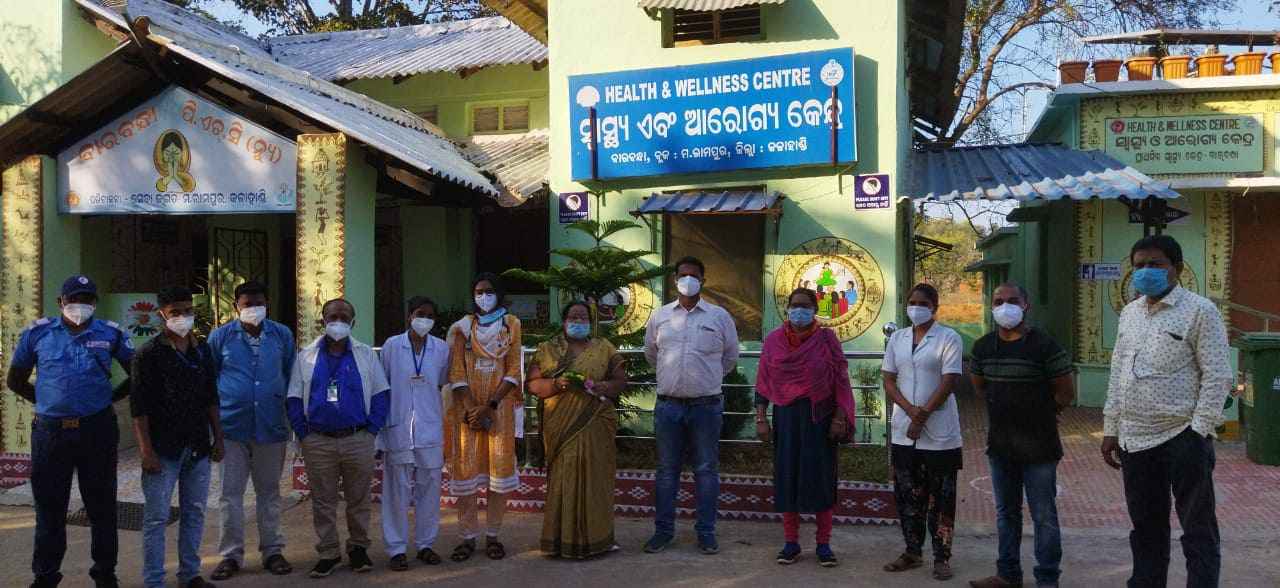
Seba Jagat has been managing and strengthening Health and Wellness Centres (HWCs) as a critical part of the healthcare delivery system, particularly in rural and tribal areas. These centers serve as the first point of contact for the community, offering services that include maternal and child health, vaccination, routine screenings, treatment for common illnesses, management of non-communicable diseases (NCDs), and essential diagnostics. At the core of our HWC operations is a community-based approach. Seba Jagats health workers—work in close collaboration with Accredited Social Health Activists (ASHAs) and Auxiliary Nurse Midwives (ANMs) to ensure a holistic delivery of services. This centres ensures that each individual, especially women and children, receives timely and quality care. We organize routine health check-ups, immunization drives, and health awareness campaigns to increase the communitys knowledge of preventive healthcare practices.In addition to routine services, Seba Jagat facilitates regular outreach health camps to extend the reach of services into remote hamlets that may not have easy access to these centers. Our HWCs are designed to provide a comprehensive approach to healthcare, focusing on prevention, early detection, and treatment. Seba Jagat works towards improving the overall health outcomes of rural and tribal communities, ensuring that they not only have access to healthcare services but also are empowered to manage their own health effectively.
Maternal, Newborn, and Child Health (MNCH)
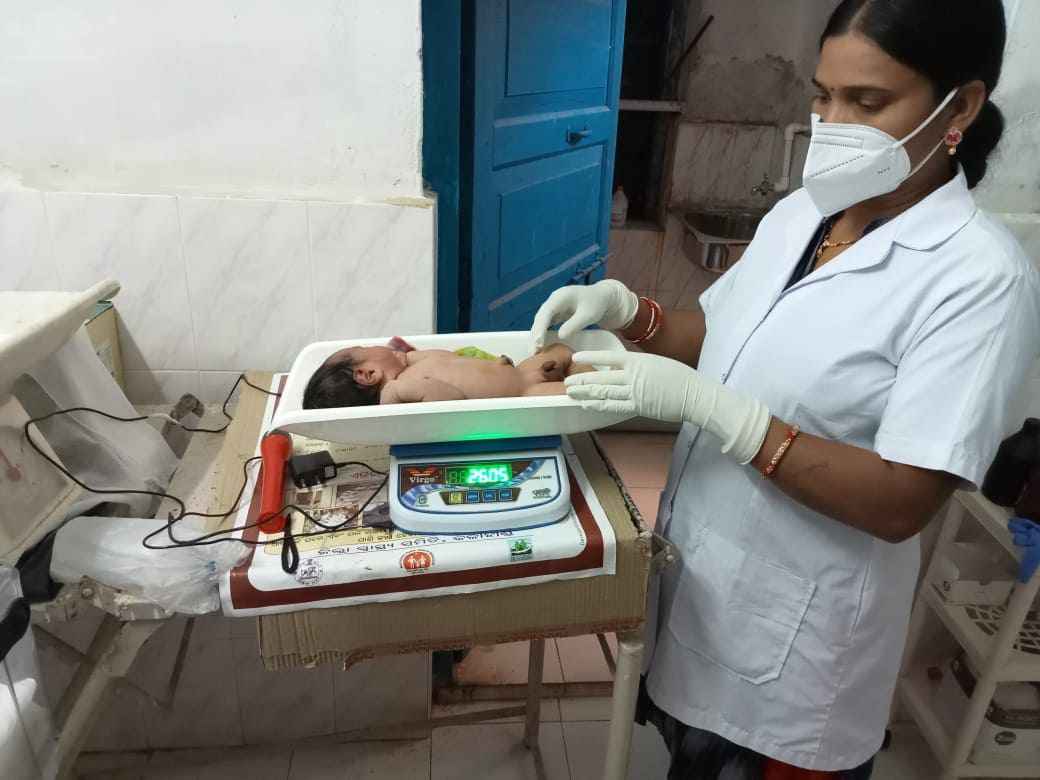
Seba Jagat prioritizes maternal and child health by focusing on key interventions that ensure safe and healthy outcomes for both mothers and children. We provide comprehensive antenatal and postnatal care, emphasizing early detection of potential complications and timely medical intervention. Safe institutional deliveries are promoted, with women encouraged to deliver at health facilities to ensure the availability of skilled care. Immunization drives are organized regularly to protect children from preventable diseases, ensuring timely vaccinations. Ensure pregnant and lactating women are provided with necessary health checkups, counseling, and referrals to higher-level healthcare services as needed. Trained community health volunteers and ASHAs play a crucial role in tracking high-risk pregnancies, providing support, and facilitating hospital or PHC linkages. Awareness sessions are held to educate mothers on the importance of early breastfeeding, proper immunization schedules, and newborn care. Additionally, child health is supported through health camps, growth monitoring, and nutrition-rich diet promotion to foster healthy development.
Nutrition and Food Security – addressing malnutrition, anemia, and promoting nutrition gardens
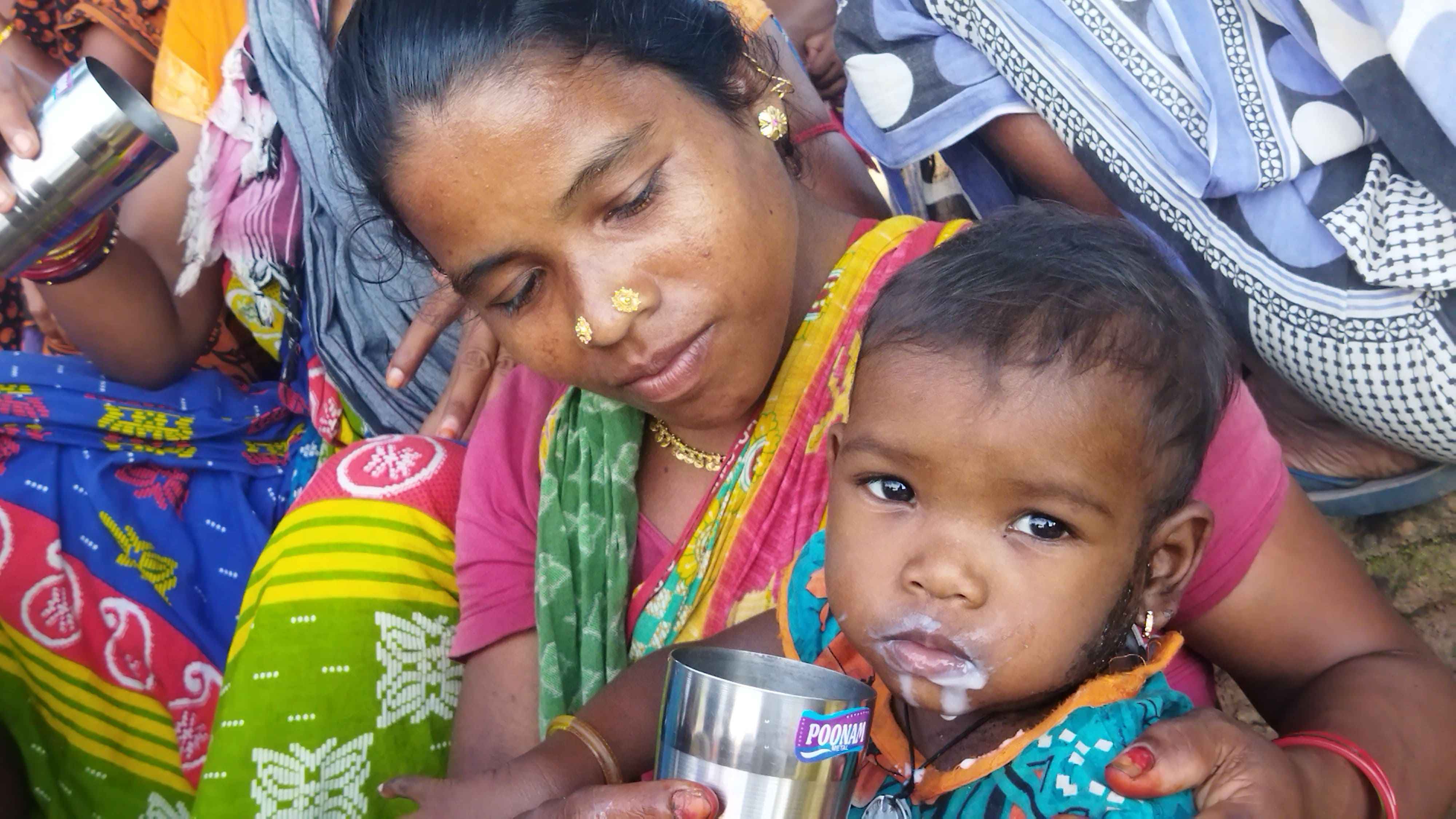
To address malnutrition and anemia, efforts focused on malnourished children, pregnant women, and lactating mothers. Anemia prevention was prioritized through iron and folic acid supplementation, nutrition education, and the promotion of dietary diversity, delivered via health camps, community meetings, and outreach programs. To combat food insecurity, sustainable agricultural practices and kitchen gardens were promoted, enabling families to grow their own nutritious food and enhance dietary diversity. Community members were trained on the benefits of diverse, homegrown produce such as leafy greens, legumes, fruits, and nutrient-rich traditional grains. Millets, being climate-resilient and locally available, played a key role in improving both dietary diversity and food security. Special emphasis was placed on providing nutritious food to children in remote villages with limited access to quality meals. Through community-based programs, regular nutritious meals were ensured to support childrens growth and development while strengthening household resilience against food insecurity. Guidance on proper food storage, preservation, and preparation techniques was provided through workshops and awareness programs, enabling families to maintain a balanced diet year-round. This holistic approach aimed at building long-term self-reliance, reducing malnutrition, and improving health outcomes for women and children while revitalizing traditional, sustainable food systems.
Adolescent Health and Wellbeing – peer education, menstrual hygiene, life skills
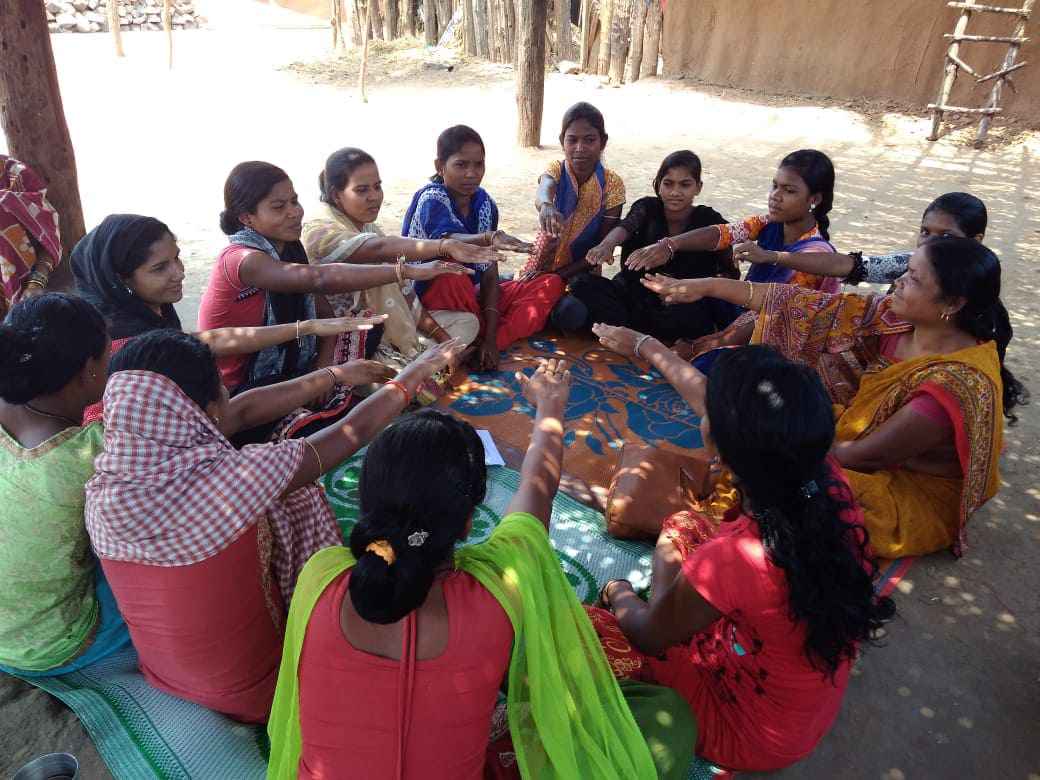
Seba Jagat takes a holistic approach to support the physical, emotional, and reproductive health of adolescents, especially girls, in underserved and tribal communities focussong on equipping youth with the knowledge, skills, and confidence to make informed decisions about their health and future. Key Program Components • Peer Education: Trained adolescents lead sessions on menstrual hygiene, reproductive rights, emotional wellbeing, nutrition, and gender equity in schools, hostels, and community spaces. • Menstrual Hygiene Management: Promotion of eco-friendly sanitary products and construction of girl-friendly sanitation facilities to improve hygiene and reduce school dropout rates. • Life Skills Education: Structured modules build critical thinking, decision-making, communication, and problem-solving abilities. • Mental Health Support: Group discussions, stress management sessions, and referrals for specialized care help address emotional wellbeing. • Preventing Early Marriage: Awareness campaigns, family counseling, and collaboration with local leaders promote delayed marriage and continued education for girls. Youth as Change makers Adolescents are not just participants—they are trained as advocates and peer leaders, taking a stand against early marriage and championing the rights and wellbeing of their peers. By integrating health education with empowerment, Seba Jagat fosters a generation of resilient, informed, and confident youth who are capable of leading change within their communities.
Water, Sanitation, and Hygiene (WASH)
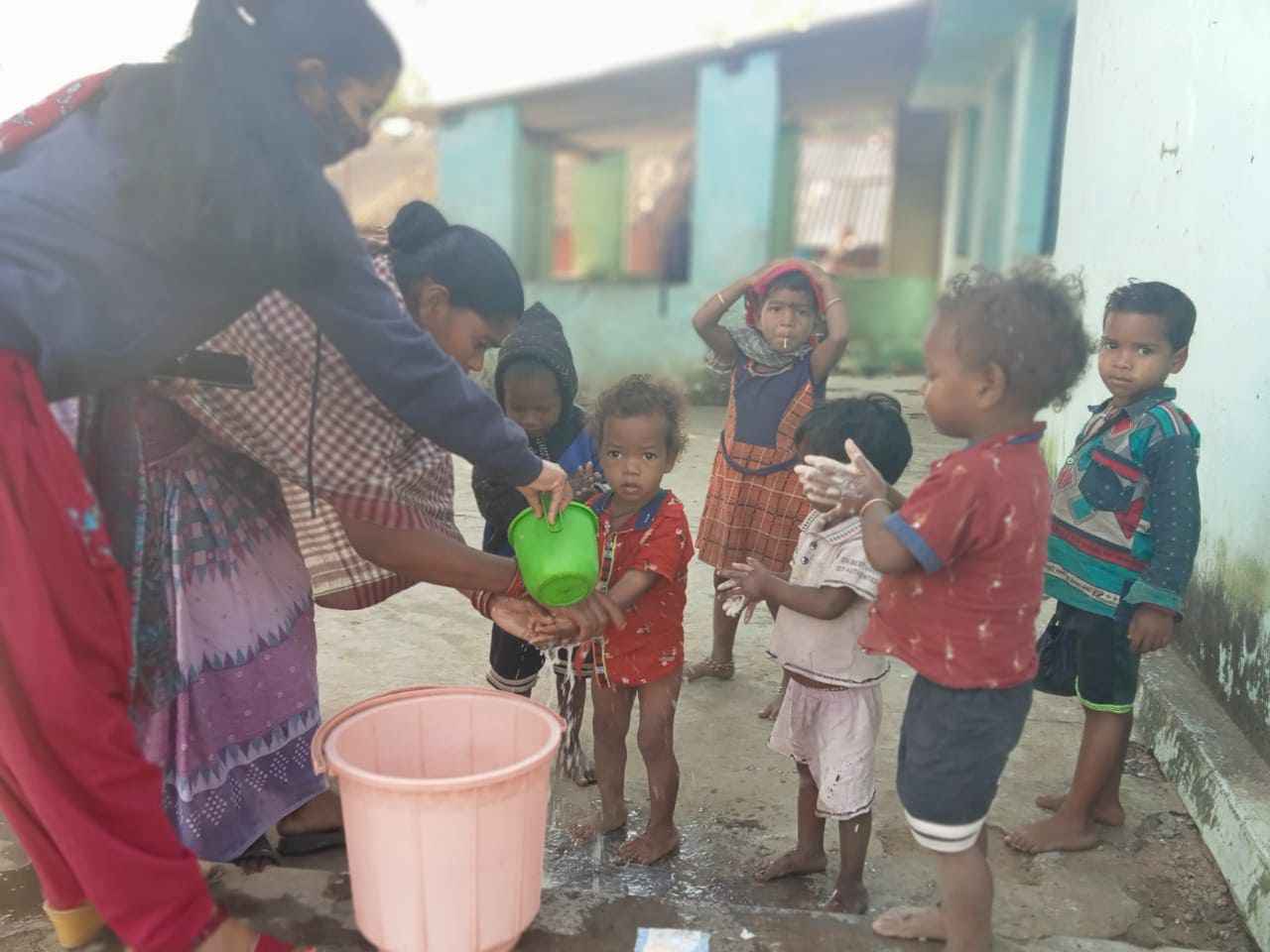
Promoting Clean Habits and Healthy Communities WASH is a core pillar of Seba Jagats public health strategy, especially in tribal and rural areas where access to clean water and proper sanitation remains a challenge. Our program focuses on improving infrastructure and fostering sustainable hygiene behaviors. Our Focus Areas • Safe Drinking Water: Support for establishing and maintaining community-managed water sources to ensure reliable access to clean water. • Sanitation: Promotion of household toilet construction and use through behavior change communication (BCC), household visits, group discussions, and educational outreach. • School-Based Hygiene: Hygiene education sessions for children on handwashing, safe defecation, and menstrual hygiene, supported by hygiene corners equipped with soap, towels, and sanitary materials. • Cleanliness Drives: Regular village-level campaigns led by trained community volunteers to reinforce public hygiene practices. Empowering Women and Youth A key innovation of our approach is the mobilization of women and adolescent girls as WASH Champions. These trained leaders: • Oversee sanitation and hygiene campaigns • Monitor water point functionality • Ensure community adherence to hygiene standards Their leadership ensures that WASH solutions are gender-responsive, sustainable, and community-owned.
Community Engagement, SBCC & Capacity Building
Seba Jagat emphasizes participatory health governance as a cornerstone of improving health outcomes. A central strategy involves engagement with community, strengthening Village Health Sanitation and Nutrition Committees (VHSNCs), enabling them to participate local health planning and accountability and for better healthcare services and coordinate effectively with Health and Wellness Centres (HWCs) and Panchayati Raj Institutions. Seba Jagat also places a strong emphasis on the capacity building of frontline health workers—including ASHAs, ANMs, and Anganwadi Workers by equipping them with updated knowledge on SBCC. We also engage with traditional healers to build their understanding of public health standards ensuring that they act as allies rather than barriers to formal care. By institutionalizing community-led monitoring and strengthening interface between citizens and the health system, Seba Jagat ensures that underserved populations are not only service recipients but active stakeholders in shaping their own health outcomes.
Mental Health
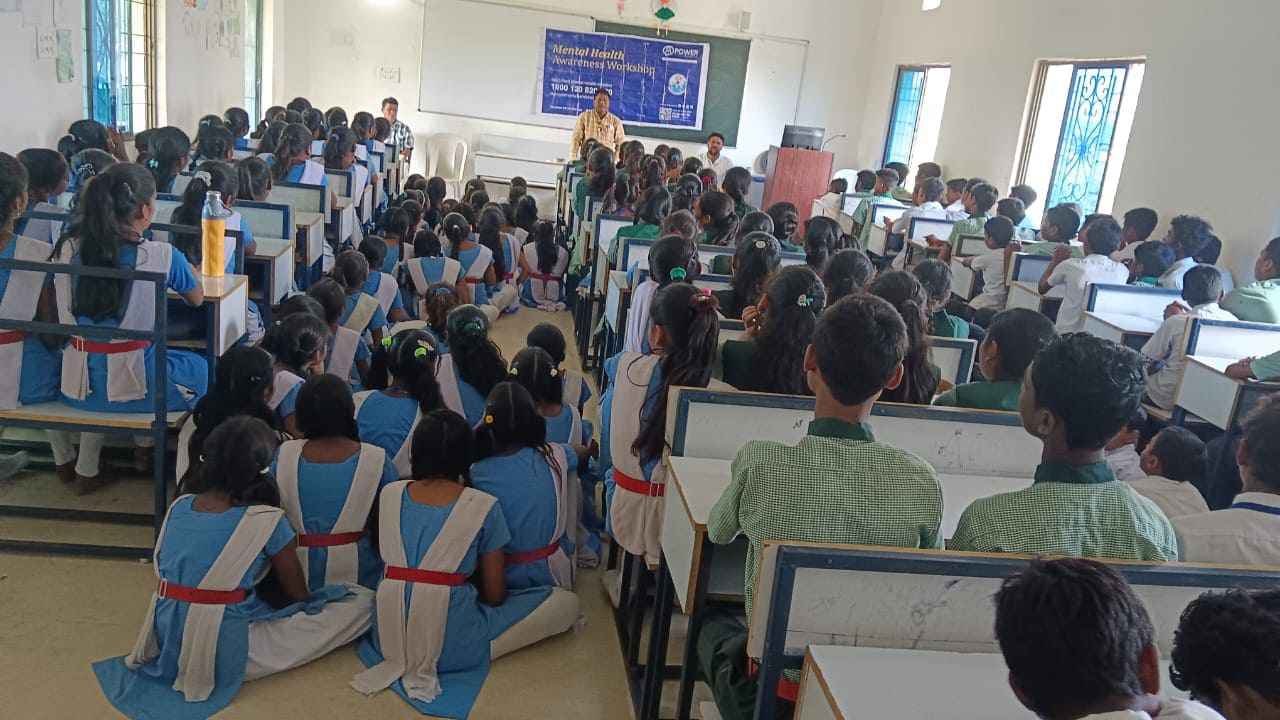
Mental Health – Community-Based Counseling, Awareness, and Stress Management Recognizing the rising mental health challenges in tribal and rural communities Seba Jagat has initiated community-driven mental health program that aims to create awareness, build local capacities, and offer accessible psychosocial support. Our interventions begin with demystifying mental health issues through awareness campaigns that challenge stigma and myths around mental illness. We organize village meetings, youth group discussions, school and college sessions, and street plays to open conversations around emotional wellbeing, depression, anxiety, substance use, and stress. Special attention is given to vulnerable groups, including adolescent girls, single women, the elderly, and persons with disabilities, who face a compounded risk of mental distress. We also train community mental health volunteers in basic psychosocial first aid, empathetic listening, and early identification of mental health issues.
 SEBAJAGAT
SEBAJAGAT
